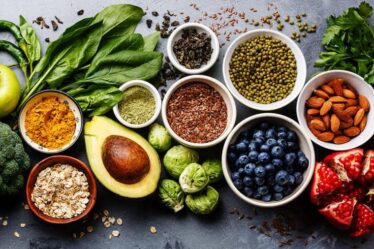
Yes, following a kidney transplant, your diet still matters. It is necessary to remain a healthy weight and exercise frequently. A well-balanced diet can help avoid high blood pressure, diabetes, and weight gain and enhance general wellness and health. Plan to eat a low-salt, high-fiber diet after a kidney transplant.
Fresh fruits and vegetables, reduced-fat dairy derivatives, whole grains, and bunches of water make up a balanced diet. You should also require keeping left from precise foods. Your dietitian can help you to conclude what diet is most excellent for you.
Is there an exact diet you require to go behind?
Of course, your nutrition is still very significant following an organ transplant. If you were on dialysis and established a kidney transplant treatment, you may discover that this healthy diet is easy to attach to than the one you are on previous to.
Is it feasible for you to put on weight?
After a transplant, many people gain weight because they have a stronger appetite. For both weight management and blood sugar control, it is crucial to eat the correct portion amounts. Foods heavy in fat or sugar should be avoided, such as fatty foods, candies, pastries, and other high-calorie foods. Eating the following foods will help you keep track of your calories:
- Vegetables and fruits, for instance, are far above the ground in fibre.
- Float milk and other nonfat milk foodstuffs
- Water, unsweetened coffee, tea or milk is examples of sugar-free drinks.
Calculating your weight will diminish your danger of heart disease, diabetes, and high blood heaviness. If you wish for to lose weight, you will need to do more action and eat smaller amount calories. To map the lower-calorie meals and snacks, inquire your physician to send you to a right dietician.
Significance of a balanced diet
Diet and nutrition are critical components of wound healing, as they help lower the risk of rejection and infection. A dietician can propose a diet that is right for your lifestyle and kidney health, and in some circumstances, you may be capable of eating items that were previously off-limits to you. Following a healthy diet has many advantages, including:
- dropping the danger of gaining too much weight
- Maintain appropriate of level of glucose in blood
- Help with lowering cholesterol groups in the blood
- Assist with maintaining a healthy blood pressure
- It helps to keep your bones healthy by supplying calcium
After-Surgery Diet and Nutritional tips to follow
Your dietician will devise a nutritional plan tailored to your specific requirements and health status. For designing a proper food plan, your medical records, weight, kidney function, and prescribed medications are all considered.
Depending on how your physical condition enhances, this diet map can be temporary or long-term. Here are some general tips to follow regardless of your eating healthy diet plan.
1. Make certain your diet is rich in protein:
It is decisive to have a balanced diet that includes a little dietary exception. Protein is particularly beneficial since it aids muscle growth and weight loss. You may work out how much protein you need with the advice of your doctor or a dietician. It is possible to overdo it, although protein supplements are normally avoided.
2. Carbohydrate-rich foods:
There are rare things you should learn about carbohydrate-rich foods:
- Sugars and starches are sources of carbohydrates.
- They supply your body with fuel and energy.
- It is difficult for your body to use additional carbohydrates when taking steroid medication. This can cause diabetes by causing high blood sugar levels.
3. Drink plenty of water:
Remaining hydrated is a crucial element of a good recovery. Drink two litres of water per day. Caffeine use should also be restricted. It is a diuretic with a weak effect that causes dehydration.
4. Salt vs Sodium:
Kidney transplant surgery might result in high blood pressure or fluid retention, among other things. Low-salt foods are indicated in these situations. Unlike potassium and phosphorus levels, which can be controlled in a few months, a low-sodium diet may be suggested for a longer time.
5. Phosphorous:
The body begins to restore bone mass lost due to renal failure with the addition of a new kidney. Your dietician may suggest foods high in phosphorous, such as low-fat dairy products, if your blood phosphorous levels have dropped.
6. Potassium:
Transplant drugs frequently impact potassium levels in the body, which can lead to muscle and heart function issues. You will also be given food recommendations to assist you in managing the potassium levels in your blood.
Foods to avoid after kidney transplant surgery
Your dietician will also inform you about high-risk foods that may interact with your medicine and produce adverse effects based on your kidney’s health, medication, and reports. Following are some of the foods that persons with a kidney transplant are advised to avoid:
- Herbs and herbal teas should not be consumed since they may interact with your post-transplant medicine and create issues.
- Pomegranate and grapefruit juice, in particular, can have a significant reaction with the immunosuppressant drug administered after surgery and should be avoided.
- Avoid raw milk cheeses, yoghurts, and other dairy products.
- After going through kidney transplant in India your immune system will weaken, so eating raw or undercooked food puts you at risk for serious intestinal sickness. As a result, eating raw meat, seafood, or poultry is not recommended.
Nutritional Care for the Long-Term
In the months and years behind their transplant, kidney transplant recipients experience nutritional issues. Excessive weight gain and high blood cholesterol are the most typical side effects of steroids and other prescription drugs, and weight control through a heart-healthy diet and exercise are the best treatment options for you.
Excess weight gain or high cholesterol levels are two of the negative side effects that can contribute to heart disease. Your doctor will monitor your health, and you may be requested to monitor your blood pressure and weight.
Final Thoughts
Finally, your food plan may change depending on your health status. The key goal of having an appropriate diet and nutrition plan in place following a kidney transplant is to boost your on the whole sustainable health and wellness. So you have the best tips mentioned above for a healthy kidney diet to follow.



